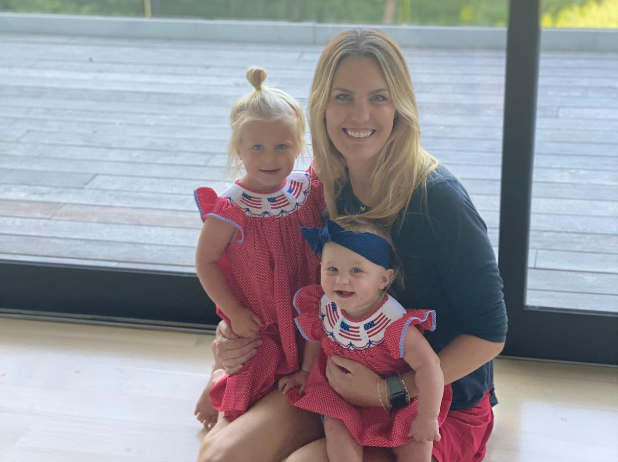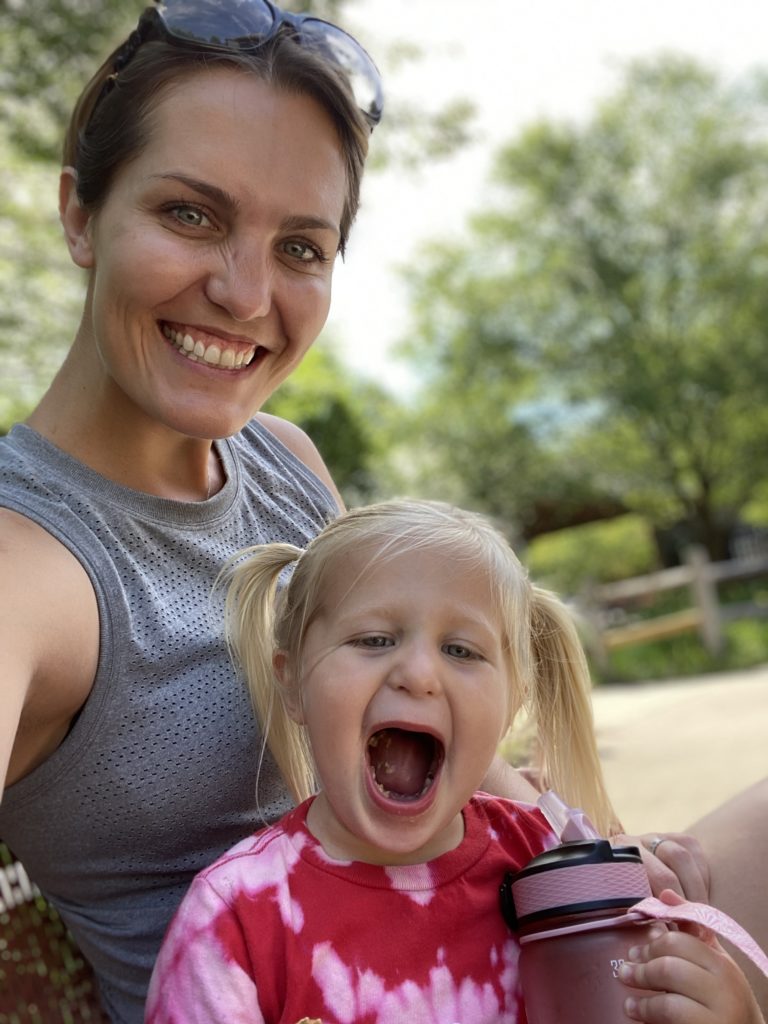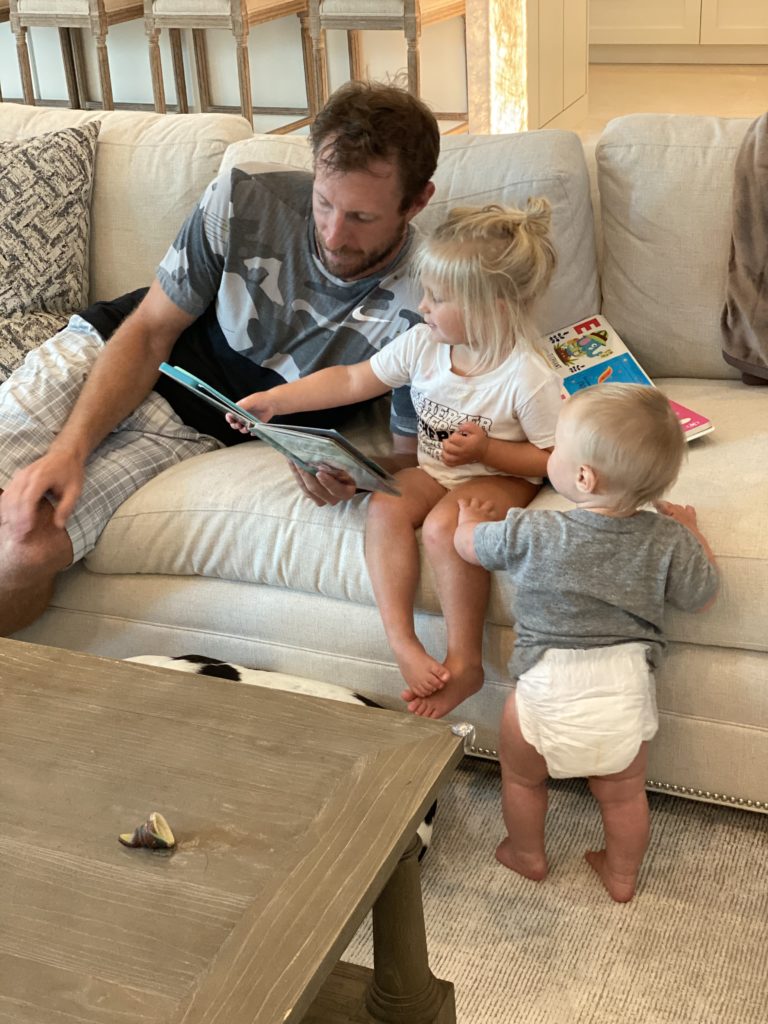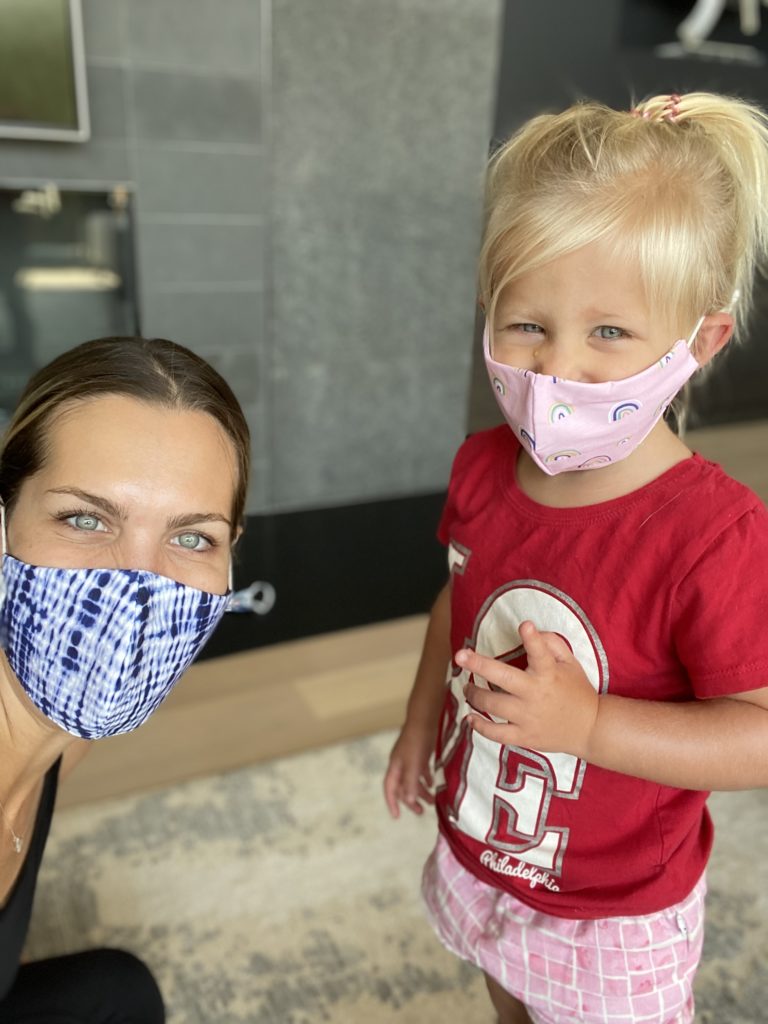
To the fans, Major League Baseball looks a lot different this year: a shorter season, empty stadiums and six feet of distance between arguing managers and umpires. It’s different to the players, of course, who have to follow new health and safety protocols, and it’s different to the families of the players as well.
“Normally, you’d have big get-togethers, huge playdates, team parties, things like that. And right now we can’t exactly get an entire team together in a house and take those chances,” says Erica Scherzer, who is married to Washington Nationals starting pitcher Max Scherzer. Watching the Nats play on TV while daughters Brooke, 2 ½, and Kasey, 1, run around the room is also a change of pace for Erica, who (like many of us) misses going to Nationals Park and (unlike many of us) traveling with the team to away games.
I spoke to Erica Scherzer by phone last month about raising a family in the DC area, why she’s so passionate about volunteering and how she finds time for self-care.
What do you love about being a mom?
The girls are so much fun. I love seeing the world through their eyes. I love seeing the little things that light them up. I love the opportunities to play in ways that I never would have without kids. We get outside every day, and that’s a lot of fun.
But being a mom has taught me a lot of patience. It’s taught me to relax and go with the flow more. And I really love that. And it really is true what everybody says, that your heart just grows immensely. It really is the most rewarding job, if you want to call it that.
What do you find challenging about motherhood?
I think in this life—with baseball—it’s finding routines. I’m a very big routine person, and I come from the belief that kids do very well with routines and structure. But we also live a life or lifestyle that kind of doesn’t have as much routine and structure. And then once you find it, as soon as you kind of fall into it, then there’s playoffs or the season ends and then you’re moving. And then you have off-season, and then spring training starts and it changes. Life is constantly changing, so one challenge is trying to adapt our routines and our structure and how to parent for all of the challenges that our hectic life and lifestyle brings into our household.
What’s something that makes juggling all of this—your family, baseball, your personal responsibilities—a little bit easier for you?
Routine is definitely a big part of it. I’m also a big believer in waking up before my kids do every day. So I get up at least an hour to two hours before they do, and I start my day on my terms, in my own way. The days where I slack on that don’t tend to go as well. And keeping perspective if things go sour: Just like the Nats go 1 and 0 every day, we try to go 1 and 0 in our household every day, too

Does your family enjoy being in D.C.?
Yes, we love the area. It’s been nice having kind of that stability and not as many moves. We live near a lot of nature trails, and we’re constantly going hiking. We’re outside picking blackberries and digging in the dirt and playing in streams. We really love how outdoorsy it is around here.
When you’re spending all this time outdoors together as a family, do you get recognized a lot?
Luckily, where we live, we’re kind of tucked in more of a remote wooded area. We can literally access trails from our backyard, so we don’t really run into people a lot. But when Max will go out and about with Brooke or if we take her to a park … now with face masks and sunglasses, it’s a lot easier for him to not get recognized. But pre-COVID, he couldn’t go anywhere with her without getting recognized—the grocery store, playgrounds, you name it. We couldn’t really go much of anywhere without being recognized.
Do you prefer the anonymity?
Yes and no. I mean, everybody’s very respectful. We’ve never really had any issues or anything. Max usually just says, “Hey, I’m with my family,” and gives a handshake or a quick hello. And I get it; if I was a kid or a fan, and I saw my favorite player out and about, I’d want to say hi, too. So it’s never really an issue, but it also is kind of nice getting to just go to a park and have nobody recognized him. That’s fun, too.

How is your family coping with the coronavirus pandemic?
Honestly, pretty good. I hate to say that in the middle of this terrible pandemic, but my husband’s employed, we have a lot of resources at our disposal and we have the privilege to be able to stay home. And so are we bored? Yes, we’re bored. Would I love to be able to just go hang out at Starbucks and go see a bunch of friends and go to a restaurant to eat? I would love to do all those things. But I also realize that I’m in a unique, blessed position where I can abstain from doing those. And if I have the ability to do that, and it doesn’t change my life that drastically, then I can.
My sister’s a surgeon, so I’ve heard some awful stories of people coming in with COVID and their family can’t say goodbye to them. Hearing those things just puts it in perspective. In the grand scheme of things, yeah, we’re bored, but it could be a heck of a lot worse.
How do you take care of your mental and physical health?
I’m actually a big meditator. I got into it maybe a year and a half ago after I had my first daughter and the adjustment to motherhood and the identity shift. It’s something I’d read about for years, and once I finally put it into practice for myself, it helps. And with these uncertain times, with so little that you can predict or hold on to, having those moments or that structure and routine that I can go back to really helps. And then I also try to stay off social media as much as possible.
Do you use any apps to help you meditate?
Yeah, the Ten Percent Happier app. That’s my favorite. I use it daily, and I absolutely love it.
Read more: Learn how Suann Song, a mother of two and founder of Appointed, stays organized.
Let’s talk about your volunteer work. You’ve worked on behalf of human trafficking victims and animal rescue. How did you pick those organizations, and what did you do for them?
A lot of them have, in some ways, picked me. Humane Rescue Alliance, for example. Back when they were Washington Humane Society, one of their employees ran into me at a baseball game and knew that I had a passion for animal welfare. He talked to me in the stands and asked me if I’d be interested. A few days later, [Max and I] went down and met with the CEO, Lisa LaFontaine. We just clicked from the start. We loved their mission, their vision and got heavily involved. I ended up joining the board a while after. That organization … has been probably our favorite partnership to date.
But then we also sometimes will seek out organizations. Like with COVID going on right now … Is there a need for masks in the community? Is there a need for supplies? Where is the need? Is it food? Is it just getting money in the hands of people? And so then we might be more specific and intentional and searching for something that might just be a short- term partnership, because it’s immediate relief.

We did start a new initiative that just launched (in early August) called Nats for Masks. Essentially we are providing masks and relief efforts for lower income communities in the DMV area. Right now we’re focusing on schools in Wards 7 and 8 in Anacostia, but depending on how much we raise, we’ll increase from there. [Max and I] are cleaning out our personal collection of memorabilia. We have so much stuff over the years—jerseys, balls, hats, cards, you name it, and we’re raffling items off. We want to make sure relief is accessible to anybody, so people can also enter by volunteering their time, by making masks, by donating food. It’s just our way of trying to make the best of a tough situation, and we’re matching all money raised.
What do you find so rewarding about volunteering or doing advocacy work?
I think one of my challenges for a long time was choosing between being able to see my husband—at the time, my boyfriend and fiancé—and travel and support his career or working and using my education and degrees and using, you know, what I’d worked so hard for.
When I really got heavily involved in volunteer work, I was able to move up the ranks and really use my degrees and use my experience. So not only were we donating money, but I was also donating my time and my experience. I felt like I brought more value to the table as well. It was just that wonderful opportunity for me to, yes, make a difference in the world but also still feel … Oh, how would I put it? Nobody just wants to sit at home and do nothing, right?
It’s fulfilling?
Yes, it’s very personally fulfilling. In some ways, people can sit there and say, “Oh, we’re doing all these great thing,” but there’s a selfish motivation, too. I get a lot out of this. I absolutely love doing the work. I love doing the program development. I love brainstorming ways to raise more money or come up with new ideas. It’s incredibly fulfilling.
This interview has been edited for clarity and length. A version of this interviewed appeared in the September 2020 issue of Washington FAMILY.







